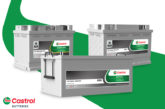When you’re running an independent repair business, and dealing with a large and varied range of customers, it can be easy to overlook financial matters. Lee Murphy, founder of cloud- based bookkeeping software, Pandle, provides some straightforward and practical tips on how to stay out of financial trouble.
If you are bamboozled by cash flow forecasting and frustrated by dealing with late payers, you are not alone. Cash flow problems are the biggest killer of small businesses, with recent research showing that over 70% of small business owners see it as their biggest threat.
A regular cash flow forecast will show you how much money the business is paying out and how much money it has coming in each month. This will give you a much clearer picture of your financial health compared with your monthly bank balance.
Many businesses that go under are not loss making; they simply run out of cash and cannot pay the money they owe.
Make sure your forecast includes not just your suppliers, rent and any employee salaries, but also big lump payments like your annual corporation tax, quarterly VAT and large ad hoc payments. These are particularly important because, if you have not set aside money, you may well not be able to pay them.
Managing your cash flow does not need to be a headache, and the good news is that today it’s easier than ever to manage the money in your business thanks to new cloud-based applications and online bookkeeping tools.
Many of these applications are free and their cash flow tools will make it a quick process. Pandle, for example, gives real time cash reporting and forecasting so that you can easily spot current or future cash flow problems and react.
Getting money in early and ‘debtor days’ down
Reducing your ‘debtor days’ – that is how long you wait to get paid – will have an immediate impact on the health of your cashflow. Waiting 60 days to be paid while having to carry the cost of parts, staff and VAT for future jobs can be an enormous strain. According to the Prompt Payment Directory, many business owners simply stop paying themselves when customers drag their feet on bills. With trade customers, consider cutting your payment terms, say from 28 days to 14 and you may even want to offer bonuses for early and up- front payments. With private customers, get people to pay a deposit and never give credit!
Stop giving it away
If you are working flat out yet making meagre money, it is a sure sign either your own costs are too high, your prices too low or both. In fact, most insolvency practitioners observe that businesses generally go under through charging too little, not too much.










